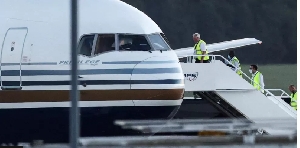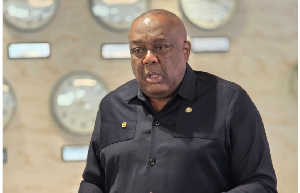Rishi Sunak's flagship Rwanda Bill will face its first test in the House of Lords later.
Peers will debate the main principles of the legislation, with the Lib Dems pushing to kill the bill in its entirety.
The "fatal" motion is expected to fail, but peers are expected to try to strip out key powers as the bill progresses.
The government's plan aims to halt legal challenges against sending asylum seekers to Rwanda.
Last week, peers inflicted a defeat on the scheme when they called for a UK-Rwanda treaty to be delayed until Kigali improves its asylum procedures.
Key votes on the legislation in the Lords are not expected until next month, but any changes made by peers are likely to be overturned by the Commons.
The government is hoping to get the flights to Rwanda running by the spring.
More than 70 speakers are scheduled to speak in the debate on Monday. Archbishop of Canterbury Justin Welby, a critic of the scheme, is among dozens of peers down to speak who are expected to oppose the plans.
The prime minister was able to pass the bill through the Commons after a Conservative rebellion failed to materialise.
Mr Sunak has argued deporting some asylum seekers to Rwanda will be a deterrent to migrants seeking to get to the UK by crossing the Channel in small boats, but Labour has labelled the plan an expensive "gimmick".
Tory divisions Debate over the legislation has exposed on-going divisions among Conservatives - leading to two deputy chairmen, Lee Anderson and Brendan Clarke-Smith, quitting their roles in order to vote for the rebel amendments.
In the final round of voting in the Commons on 18 January, more than 60 Conservative MPs backed rebel amendments to allow the UK government to ignore parts of human rights law when sending people to Rwanda.
Dozens of Tory MPs had suggested they would be willing to abstain or even vote against the entire bill without fundamental changes.
However, in the event, just 11 MPs voted against it - including former immigration minister Robert Jenrick and former home secretary Suella Braverman.
The votes were a culmination of months of Conservative party infighting and coincided with a poll funded by a group called Conservative Britain Alliance - which projected Labour was on course for a 120-seat majority.
Tory pollster Lord Hayward has called for the Electoral Commission to look into polls pushed by groups with no credible identifiable "beneficial owner".
Africa News of Monday, 29 January 2024
Source: bbc.com













